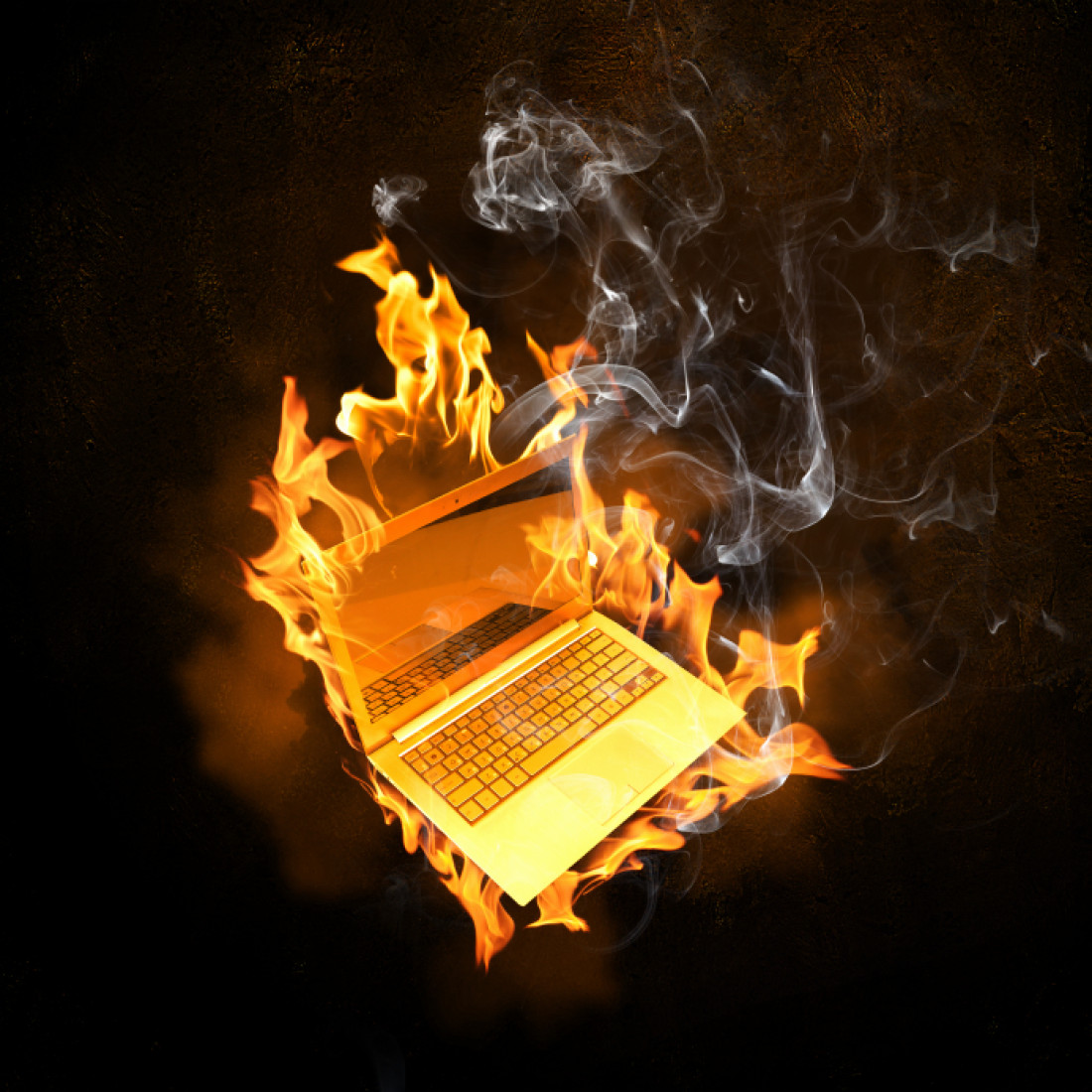After Torching Laptop, CEO Feels the Heat of Sanctions

Fire consumes all – including, perhaps, one CEO’s chance of winning his lawsuit. Because G. Wesley Blankenship burned relevant evidence, the jury in his case will now be told that it should assume the lost documents were bad for him.
Blankenship left his job as CEO of Security Controls, Inc. in early 2012. He soon decided to put even more distance between himself and his employer by having a bonfire. Into the flames went Blankenship’s laptop and his SCI paper files.
This turned out to be a bad choice when Blankenship sued SCI and its directors in mid-2012, alleging that they weren’t giving him proper value for his shares in the company. Blankenship’s lawyers eventually informed SCI of the fire, and SCI moved for sanctions, arguing that Blankenship had knowingly “spoliated” – i.e., destroyed – relevant evidence. As we’ve previously discussed in this post, spoliation can have serious consequences for litigants. Among these consequences are jury instructions that allow jurors to assume that the destroyed documents were detrimental to the party’s case.
In Blankenship’s case, the Michigan federal court decided to impose that very sanction. As the basis for its ruling, it found that Blankenship “acted in bad faith when he burned his laptop and SCI documents in a fire” because he should have known of the percolating disputes between him and SCI at the time he lit the match. Blankenship argued that he didn’t expect litigation because he had resigned and entered into a severance agreement under which he was paid $3 million. The court disagreed, however, noting that SCI had accused him of various breaches of fiduciary duties in 2011 and that Blankenship’s agreement didn’t release the company’s claims to that effect. It said that to accept Blankenship’s version of the facts, the “Court would have to believe that the extensive disputes between the parties simply disappeared on February 12, 2011 and then, out of the blue, re-appeared only weeks after plaintiff destroyed his laptop and all of his SCI documents on a fire.” It’s fair to say the court thought this kind of argument was just blowing smoke.
Information provided on InsightZS should not be considered legal advice and expressed views are those of the authors alone. Readers should seek specific legal guidance before acting in any particular circumstance.
As the regulatory and business environments in which our clients operate grow increasingly complex, we identify and offer perspectives on significant legal developments affecting businesses, organizations, and individuals. Each post aims to address timely issues and trends by evaluating impactful decisions, sharing observations of key enforcement changes, or distilling best practices drawn from experience. InsightZS also features personal interest pieces about the impact of our legal work in our communities and about associate life at Zuckerman Spaeder.
Information provided on InsightZS should not be considered legal advice and expressed views are those of the authors alone. Readers should seek specific legal guidance before acting in any particular circumstance.




